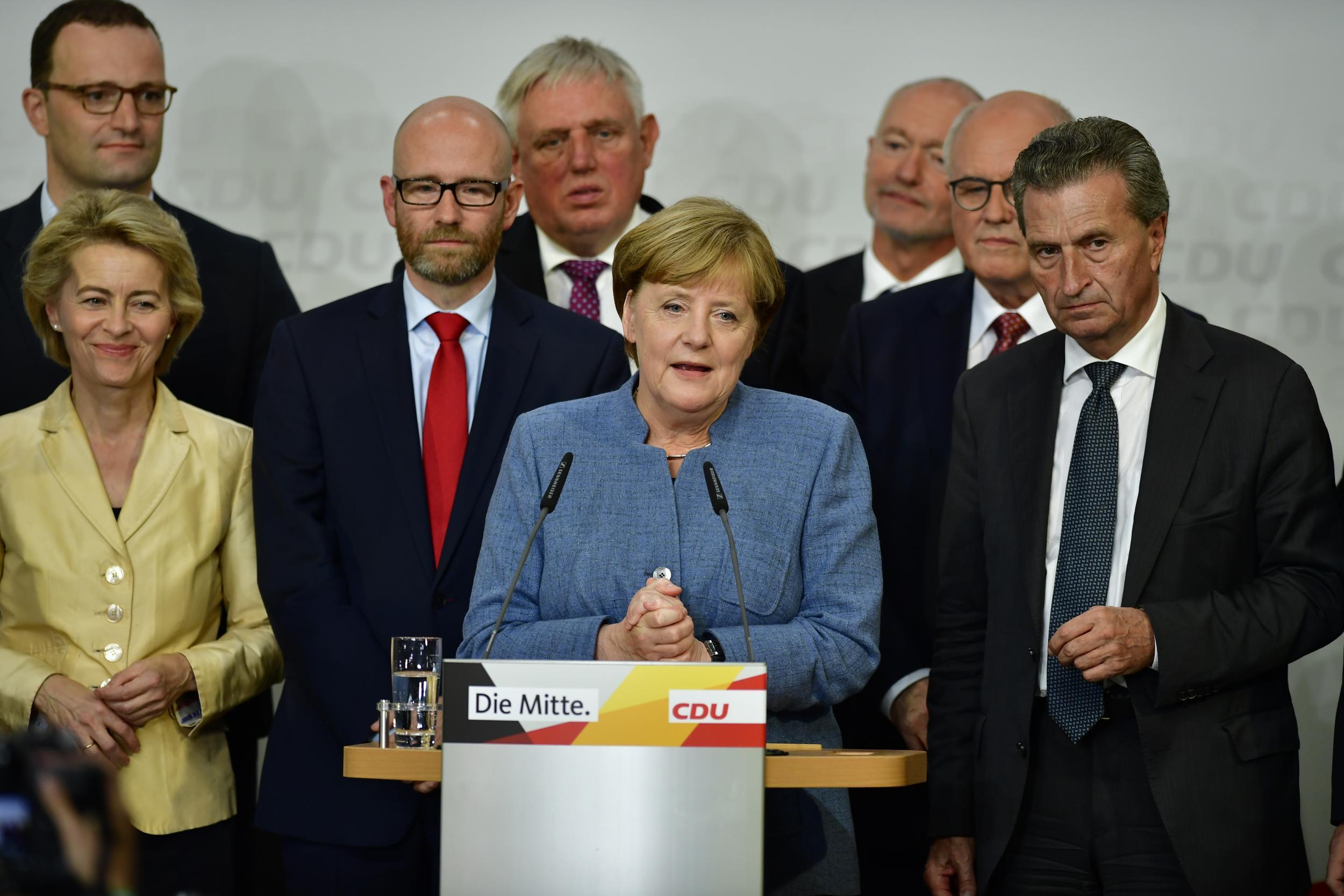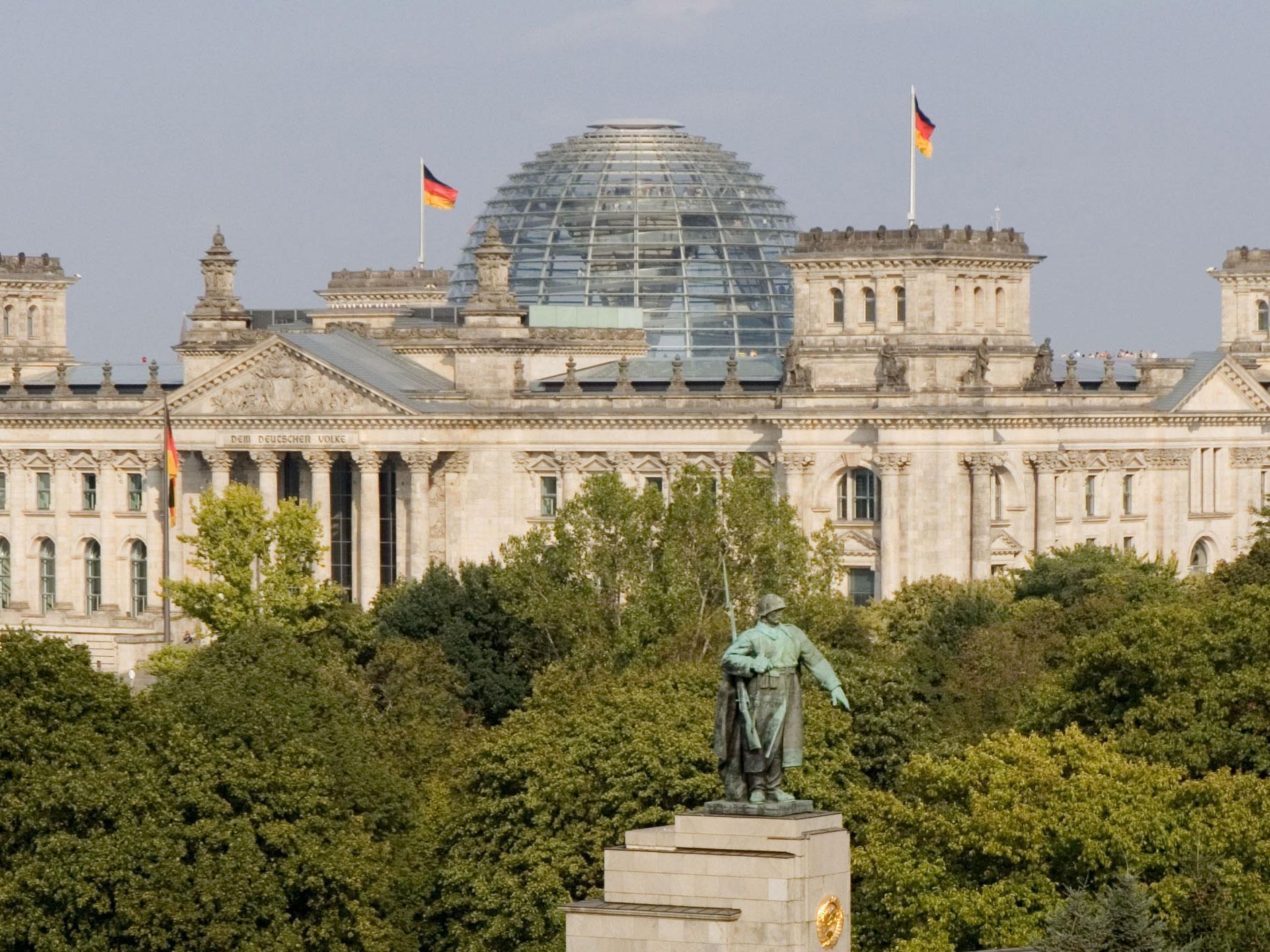Angela Merkel convinces German Greens to drop environmental policies as price of coalition
Germany moves a step closer to having a government

Germany came one step closer to forming a new government on Tuesday after Angela Merkel’s CDU party convinced two would-be allies to drop key policies as the price of a coalition.
The German Green party have agreed in principle to drop their flagship environmental policy – a fixed dates on the phase-out of fossil fuels – as the price for joining the government.
Meanwhile the liberal FDP, also a favoured coalition partner for the CDU, has also accepted that any government it was a member of would not be able to cut taxes as deeply as the party would like.
The two concessions put Ms Merkel further on the way to forming a so-called “Jamaica coalition” – so-named because the black, green and yellow colours of the three participating parties match those of the island nation’s flag.
The coalition configuration is so-far untested at a national level, though it has been formed locally in some German federal state parliaments.
Such a coalition is the only game in town for the CDU, after the centre-left SPD, formerly in a grand coalition before this year’s election, said it wanted to return to opposition to lick its wounds after a disastrous performance at the polls.
The CDU would be extremely unlikely to do a deal with either the left-wing Die Linke or the far-right AfD for ideological reasons. Because of this, mathematically a minority government – highly unusual in Germany – would be the only other realistic option for Ms Merkel if talks failed.
The two new concessions break a deadlock on talks, which have barely moved for the last two weeks.
At the general election the FDP had pledged 30 to 40 billion euros worth of tax cuts, but has now said it will settled for the abolition of the so-called “solidarity tax” a mechanism whereby the richer western German states subsidise the former communist east which joined after reunification.
Such a move to scrap the tax could be risky for any government, however, because the eastern German states are the main proving ground of the insurgent far-right AfD party.
The FDP also says it wants tax relief for business and families.
The Greens’ manifesto had insisted on fixed dates for the abolition of coal-fired power stations and a ban on cars with internal combustion engines.

“For us, it doesn’t matter if the last coal-fired power station is off the grid in 2030 or 2032. That’s where we are pragmatic,” Greens co-leader Simone Peter told the Rheinische Post newspaper.
Ms Merkel has already had to placate her close allies in the CDU’s sister party, the CSU, which contests elections in Bavaria instead of the CDU. Last month the two parties agreed a limited migration policy to appease more conservative elements in the regional party.
Under the plan, refugee arrivals would be capped at 200,000. The Greens are however opposed to the policy and it has been another sticking point in negotiations.
Coalition negotiators from all parties will have to consult their members before they are allowed to move to the next phrase of negotiations.
Join our commenting forum
Join thought-provoking conversations, follow other Independent readers and see their replies
Comments
Bookmark popover
Removed from bookmarks